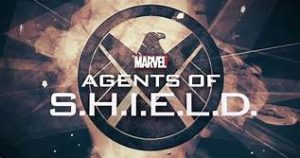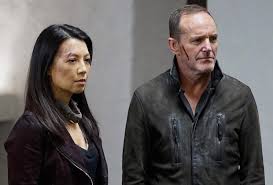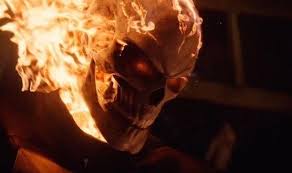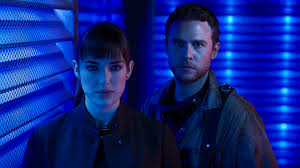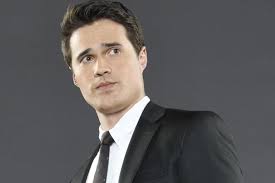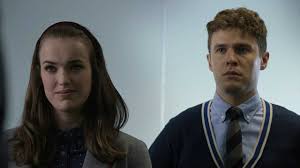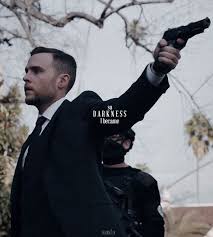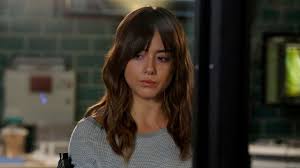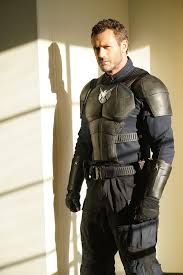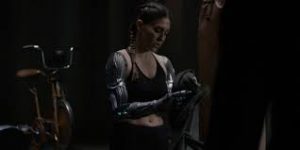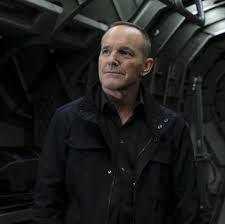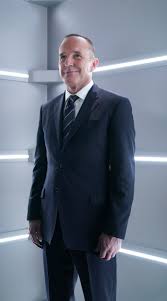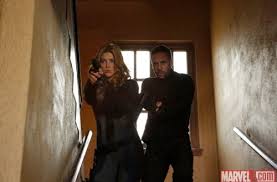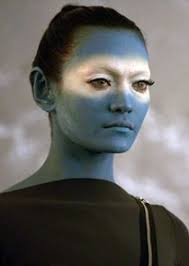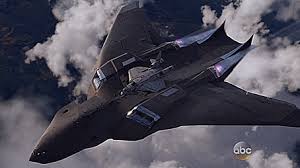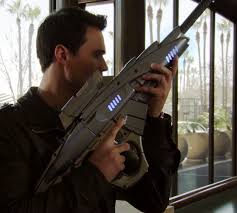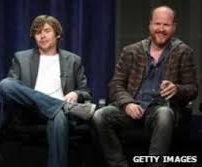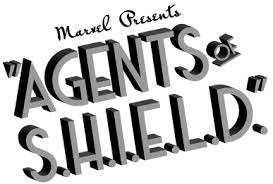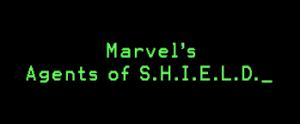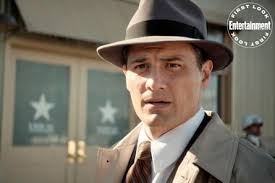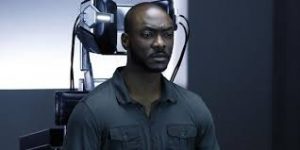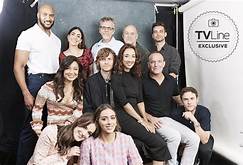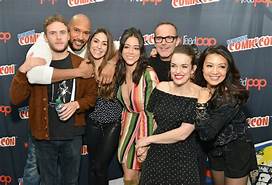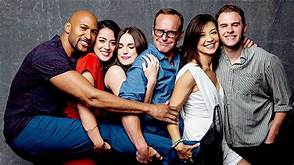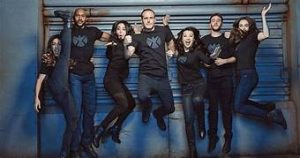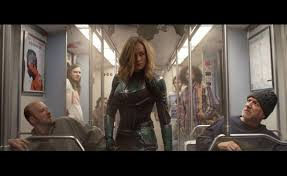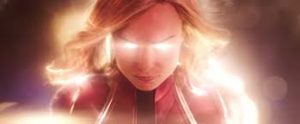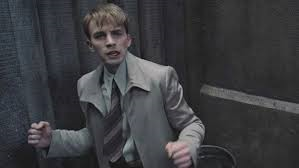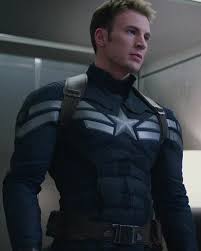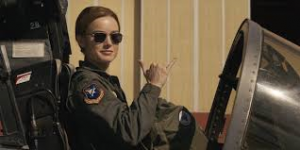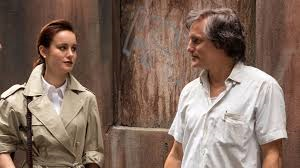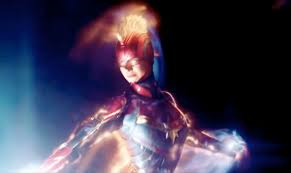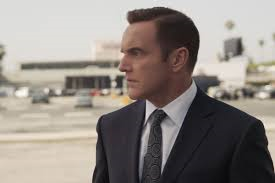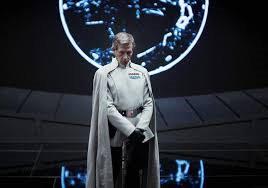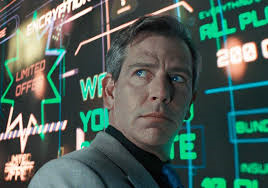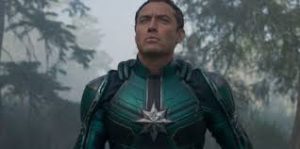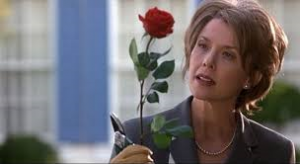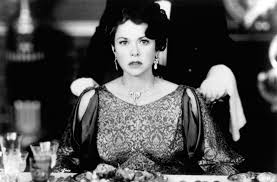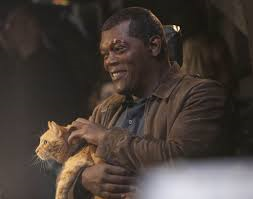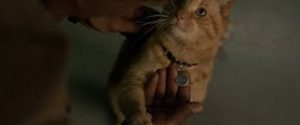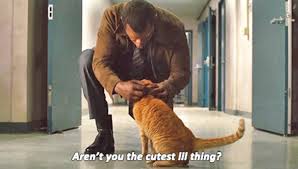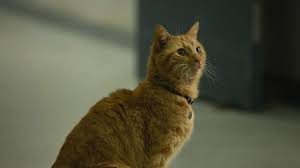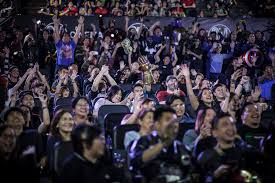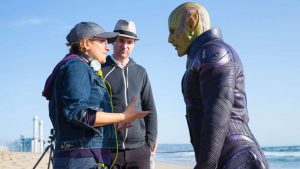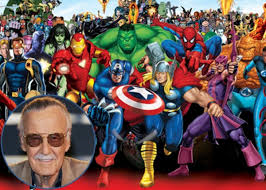SHORT TAKE:
Popular TV show spin-off from The Avengers movies, Agents of S.H.I.E.L.D. finishes with class and grace after a seven year run.
WHO SHOULD WATCH:
Most episodes are appropriate for any age. But there are a few which include: loose sexual relationships, scenes of violence and/or death of regular characters, and disturbing familial dysfunction. So, as always, more mature guardians should be the gatekeepers here, though expect that most shows will be family viewing.
LONG TAKE:
SPOILERS AND SPOILERS – IT’S INEVITABLE WHEN DISCUSSING A SHOW THIS LONG RUNNING
My father was a science fiction fan extraordinaire. He had closets full of paperbacks, all alphabetized for easy reference. He had an incredible collection of really old large format pulp magazines from the 1930’s and 1940’s like Astounding and Amazing. They were not made for longevity but quick sales and even though he lovingly preserved them in zip lock bags, by the time I was around they were so brittle, just turning their pages risked their crumbling to pieces.
My Dad could rattle off and speak with some authority on authors like Heinlein, Asimov, E.E. “Doc” Smith, and Burroughs. And he would always have one of his favorites, like Smith’s Skylark or Lensmen series, in his back pocket to pull out and keep him company. They would companion him in a dental waiting room or while eating lunch or stuck in traffic or even just drifting off to sleep at night. He said re-reading these classic gems were like “visiting old friends”.
There are sci fi shows I feel this way about too, such as Tennant’s Dr Who, and Star Trek both TOS and Next Generation. Another one of those series which has, over the years, garnered both my respect and affection is Agents of S.H.I.E.L.D. A spin off show based upon the secret organization officially led by Nick Fury (the eye-patched Samuel L. Jackson from The Avengers) but managed, in fact, by the ultimate super hero wrangler –
Phil Coulson (Clark Gregg). Coulson “died” in The Avengers. Coulson was, to quote Coulson “shanked by the Asgardian Mussolini” (referring to Tom Hiddleson’s Loki), and his purported death was used by Fury as a catalyst for the unification of the disparate, bickering mighty warriors. The murder of their “mascot” inspired them to forge a united front which was breakable only from within their own ranks later in Civil War.
However, the character of Coulson was so popular among fans that the brothers Whedon decided to create a show with him in the lead. AOS was clever, occasionally self-aware, followed storylines that had to scramble to keep up, sometimes at the “last minute” in the wake of the Marvel super hero movies, and accommodate to the needs of their big screen siblings – such as the dissolution of S.H.I.E.L.D. after the Sokovia Accords and the discovery of HYDRA agents embedded within S.H.I.E.L.D. AOS rolled with the punches. It featured inventive bad guys, martial arts women in leather outfits, space ships, laser weapons, alien artifacts, dangerous A.I.s, clever quips and a flying car. But their greatest strength was never taking themselves too seriously. One of the opening scenes of the pilot helped set the mood for the rest of its seven year run. Maria Hill (Cobie Smulders), while interviewing Grant Ward (Brett Dalton) for a position with S.H.I.E.L.D. asks Ward what S.H.I.E.L.D. stands for. He replies: “Strategic Homeland Intervention, Enforcement and Logistics Division.” She follows up with: “And what does that mean to you?” To which Ward quips: “It means someone really wanted our initials to spell out “S.H.I.E.L.D.”
AOS dealt with the unlikely to the ridiculous: from gravitonium powered anti-heroes to the supernatural
Ghost Rider (Gabriel Luna). From mutants with super powers to Nazi hold overs. From aliens to time travel. And the writers never backed down from even the most preposterous situations. They addressed them head on, usually with some pithy comments from Coulson. They respected their material and treated the situations seriously but never ignored or took for granted the fact that sometimes the circumstances were, indeed, bizarre.
While their strength was in humor their charm was the familial feel they brought to their team. While Coulson was never without a “Dad joke”, appropriate for the paternal figure he came to be, he ensured there would be fairness and discipline in the ranks.
Coulson’s right hand, stalwart back watcher, friend and sometimes Jiminy Cricket conscience was the beautiful but dour faced Agent Melinda May (Ming-Na Wen). Reluctantly carrying the nickname “The Cavalry” she was the protector, and S.O. or supervising officer for the new recruits.
Then there was Fitz-Simmons, actually two geniuses:
Leo Fitz and Jemma Simmons (respectively, Iain De Caestecker and Elizabeth Henstridge), a techie and a biologist, best friends since school whose relationship later blossomed into romance.
Ward was the big brother muscle and
Sky (Chloe Bennet) the little sister with more skill than common sense. At least this is how they started.
Another virtue of the show is they never let their characters stay put. Lack of routine was the norm. True to the Whedons – never get REALLY attached to any character as you will eventually lose them in surprising and shocking ways – either from death or personality development, but that is part of the creative attraction to the show. You were never allowed to get comfortable with a character, even if they DIDN’T do a Whedon and get killed off unexpectedly.
Reliable, boring, by-the-book,
Ward turned out to be a
double agent for HYDRA (the bad guy new age Nazis) barely holding his psychosis in check.
Fitz, the mousy tech hid a ruthless
Mengele-like aspect to his personality, inherited from his father and which, in one time stream, led him to be a megalomaniac super villain and in another time line, a savvy pragmatic leader.
Sky started out as an anti-establishment computer hacker,
who turned out to be the daughter of a powerful enhanced villain but then used her new found powers to become a top agent in the organization she initially tried to expose.
The enhanced
Jeffery Mace (Jason O’Mara), who led S.H.I.E.L.D. briefly after Coulson stepped down, turned out to be a chemically boosted fraud intended as a PR stunt.
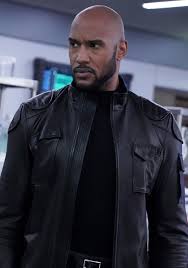 Mack (Henry Simmons), the devout Christian mechanic, happy with being in the background, later became the head of S.H.I.E.L.D.
Mack (Henry Simmons), the devout Christian mechanic, happy with being in the background, later became the head of S.H.I.E.L.D.
Elena “Yo-Yo” (Natalia Cordova-Buckley), a mistrustful independent street fighter whose hyper human speed would have given Flash a run (literally) for his money, became a cyborg and one of S.H.I.E.L.D.’s top agents.
And then there’s Coulson.
Coulson just kept – well, coming back. He was stabbed through the heart and brought back with alien blood. After succumbing to a degenerative side effect FROM the alien blood he then returned as the subconscious embodiment of an invading alien scout. Cut in half by Melinda May he returned as an L.M.D. (computer A.I.). Blown up he appeared once again in a digitized fashion as a
Max Headroom homage, then was graced with a new
L.M.D. body courtesy of Simmons. He died dozens of times during a time loop but because he, alone, could remember all of the loop incarnations was able to stop that merri-go-round. Talk about not being able to keep a good man down! As Coulson put it: “Dying, it’s kind of my super power.”
Then there were the characters who worked their way into the group but then were snatched away by the writers, by death or unavoidable circumstance: the optimist Trip, the unlucky Rosalind (Constance Zimmer) Coulson’s romantic interest, the Koenig triplets, the married
Bobbie and Lance Hunter (Adrienne Palicki and Nick Blood) who, while devoted to each other, made the Bickersons look happily married.
AOS went on for seven seasons. Like any show it had its good and bad installments. But overall AOS, when looked at all in one piece, was a single story of: fortitude in the face of seemingly insurmountable odds, self-sacrifice, altruism, protection of freedom, and defense of the weaker and innocent. Basically the fundamental motto of the Grandaddy of all Superheroes – Superman: Truth, Justice and the American Way.
And I loved the fact that, like the characters in Galaxy Quest, they believed: “Never give up! Never surrender!” And like Kirk and Spock, characters from (assuming you could be from another galaxy yourself and not know who they are) the Star Trek Universe, (the show on which Galaxy Quest was based), the characters on AOS never accepted a no-win scenario and never lost faith in the possibility of an alternative solution no matter how dire the situation.
Agents of S.H.I.E.L.D. plays out like one long – very long (99 hour) – movie. Each season has a distinct arc, mission to accomplish, challenge to overcome, and puzzle to solve. And no matter the unusual challenge:
enslaved by Kree in outer space, trapped in a virtual evil alternate universe, or simply dealing with an “epidemic” of new “enhanced” people, the core characters remain familiar but never grow stagnant or stale. They grew and evolved, like a kaleidoscope whose colors are always the same but evoke dynamic patterns.
The science fiction is solid, relying on the tech we have now but anticipating advances,
like “icer” guns which are more advanced tazers, androids and Chronicoms which anticipate human looking A.I.s, and planes which can negotiate space as well as atmosphere.
The theme music and soundtrack by Bear McCreary and Jason Akers, brass heavy and heroic, have the familiar Marvel Universe feel.
The final season was a doozy. Knowing they were winding up almost a decade of storylines, the writers
Joss and Jed Whedon, and actors simply had WAY too much fun. Time travel was the name of the game and with each passing decade the show immersed itself in wonderfully eccentric ways with tongue VERY firmly planted in cheek. For example,
the show set in the 1930’s was black and white with accompanying narrative, the affectation ultimately given a scientific explanation.
The season set in the 1970’s not only featured the tacky clothes and grainier film quality particular to that time period but adapted its intro to include the trademark cheesy technique of actor-turn-reveal-pose-credit used in every show from The Love Boat to Perry Mason and spoofed at the end of Galaxy Quest. The 1980’s featured a song in a not so subtle but simultaneously nostalgic and funny way.
There’s even a split second nod to Back to the Future.
One of the most distinctive elements of Agents of S.H.I.E.L.D. was the way the cast radiated a sense of fun. Every character was given moments to shine and each conveyed a sense of loving their character and running with the often crazy new aspects to their characters. Nothing deterred these guys. They faced death, acquired superpowers, were absorbed into a virtual world within a computer model made of the hopes and fears of the agents, traveled time, encountered the supernatural, and in a couple of notable scenes even met Nick Fury himself.
There were side characters compelling enough to deserve their own shows, but sadly, never got them: Bobby and Hunter – the married and bickering killer agents, Enoch
the put upon android (Joel Stoffer) who wanted to fit into this ersatz family, 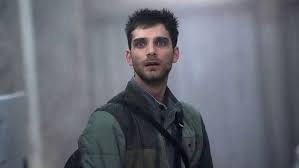 Deke (Jeff Ward) the under appreciated tech genius sucked out of an alternate timeline who was (probably) Fitz-Simmons’ grand child,
Deke (Jeff Ward) the under appreciated tech genius sucked out of an alternate timeline who was (probably) Fitz-Simmons’ grand child,
Calvin (Kyle MacLachlan) Sky’s mad scientist father who was contented with a mind wipe and job as a veterinarian,
Sousa a heroic figure rescued from a historic death and whisked off secretly in S.H.I.E.L.D.’s time traveling ship,
Trip (B.J. Britt) who endeared himself to everyone then was summarily Whedonized, Ward who was transformed into an alien supervillain, 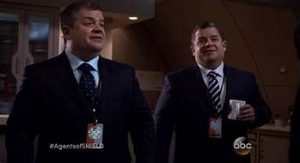 a set of identical triple agents (Patton Oswalt),
a set of identical triple agents (Patton Oswalt), 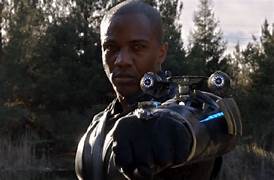 Mike (J. August Richards), a cybernetically enhanced father who longed to return to his son, a stranded Asgardian, Chronicoms, the supernatural Ghost Rider, and an evil Russian agent who became a disembodied head remotely operating an LMD version of himself, among many others.
Mike (J. August Richards), a cybernetically enhanced father who longed to return to his son, a stranded Asgardian, Chronicoms, the supernatural Ghost Rider, and an evil Russian agent who became a disembodied head remotely operating an LMD version of himself, among many others.
I wish I had time to mention all the entertaining cast members that popped into AOS over 136 episodes but there were literally hundreds of supporting members of the company, most of whom made an interesting impression.
This was a show to look forward to but never have to take seriously. Agents of S.H.I.E.L.D. was a world of fantasy which rarely succumbed to the political correctness so debilitating to creativity today. I shall miss the prospect of new shows but think they went out with class and style, completing character arcs and homaging the heck out of their and other universes but never losing sight of the themes of: family, patriotism, heroics, courage, self-sacrifice, constantly striving to do the best with the gifts God has given you, coping with massive challenges, and a “Never give up, never surrender” (thank you again Galaxy Quest) attitude.
Agents of S.H.I.E.L.D. was a world any superhero would have been proud to call home and a place, I think, my Dad would have enjoyed visiting.
So long, farewell.

